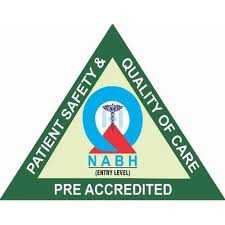
A diagnosis of glaucoma can bring about significant adjustments to daily life, but with the right knowledge and strategies, individuals can continue to lead fulfilling lives while managing their eye health effectively. This comprehensive guide offers practical tips for living with glaucoma, addressing various aspects of daily life to empower individuals on their journey to maintaining optimal vision and well-being.
Understanding Your Diagnosis:
Education is the first step to empowerment. Take the time to understand your specific type of glaucoma, its progression, and the recommended treatment plan. Knowledge is a powerful tool in managing and coping with any health condition.
Regular Eye Check-ups:
Consistent eye check-ups are crucial for monitoring the progression of glaucoma and adjusting the treatment plan accordingly. Work closely with your eye care professional to schedule regular appointments and adhere to the recommended check-up frequency.
Adhering to Medication Regimens:
If your treatment plan includes medications, it’s vital to take them as prescribed. Set up a routine to ensure you never miss a dose, and discuss any concerns or side effects with your eye care professional promptly. Consistent medication adherence plays a pivotal role in managing intraocular pressure.
Incorporating Lifestyle Adjustments:
Certain lifestyle modifications can contribute to better glaucoma management. These may include avoiding activities that involve significant head positioning, managing stress, maintaining a healthy diet rich in antioxidants, and staying hydrated. Consult with your eye care professional to determine which adjustments are most suitable for your situation.
Creating a Supportive Environment:
Enhance your living space to make it more accommodating for individuals with visual impairments. Ensure good lighting, minimize obstacles, and consider using contrasting colors to improve visibility. Simple modifications can significantly enhance your daily living experience.
Assistive Devices and Technology:
Explore assistive devices and technology designed to aid individuals with visual impairments. This may include magnifiers, talking watches, or smartphone apps with accessibility features. Stay informed about the latest advancements that can enhance your independence.
Building a Reliable Support Network:
Share your journey with trusted friends and family. Having a reliable support network can provide emotional support, assistance with daily tasks, and encouragement during challenging times. Communicate openly about your needs and involve your loved ones in your eye care journey.
Staying Active and Engaged:
Physical activity has numerous health benefits, including potential positive effects on eye health. Engage in activities that you enjoy and that align with your abilities. Regular exercise can contribute to overall well-being and may have specific benefits for individuals with glaucoma.
Managing Stress:
Stress can impact intraocular pressure, so it’s essential to manage stress levels. Incorporate stress-relief techniques such as deep breathing, meditation, or hobbies that bring joy and relaxation. Prioritize self-care to support your mental and emotional well-being.
Exploring Low Vision Rehabilitation:
Low vision rehabilitation services can provide valuable guidance on maximizing your remaining vision. These services may include orientation and mobility training, adaptive technology recommendations, and counseling to address the emotional aspects of vision loss.
Nutrition for Eye Health:
Adopt a diet rich in nutrients that support eye health. Include foods high in antioxidants, omega-3 fatty acids, and vitamins A, C, and E. Consult with a nutritionist or your healthcare team to develop a personalized nutrition plan.
Maintaining a Positive Mindset:
Cultivate a positive mindset and focus on the aspects of life you can control. Celebrate your achievements, no matter how small, and seek inspiration from individuals who have overcome similar challenges. A positive outlook can positively influence your overall well-being.
Seeking Emotional Support:
Living with glaucoma can be emotionally challenging. Don’t hesitate to seek professional emotional support, whether through counseling, therapy, or support groups. Connecting with others who share similar experiences can provide valuable insights and encouragement.
Educating Others:
Raise awareness about glaucoma within your community and among friends and colleagues. Dispelling misconceptions and fostering understanding can create a more inclusive and supportive environment.
Planning for the Future:
As you navigate daily life with glaucoma, consider long-term planning. This may involve discussions about financial matters, support systems, and advanced directives. Planning for the future can offer peace of mind and ensure that your wishes are known and respected.
Conclusion:
Living with glaucoma requires a proactive and holistic approach to daily life. By incorporating these tips into your routine, you can not only manage the challenges presented by glaucoma but also thrive in various aspects of your life. Remember, each person’s journey with glaucoma is unique, and working closely with your eye care professional to tailor strategies to your specific needs is key to maintaining optimal vision and overall well-being. With knowledge, support, and a positive mindset, individuals with glaucoma can continue to lead fulfilling and meaningful lives.

